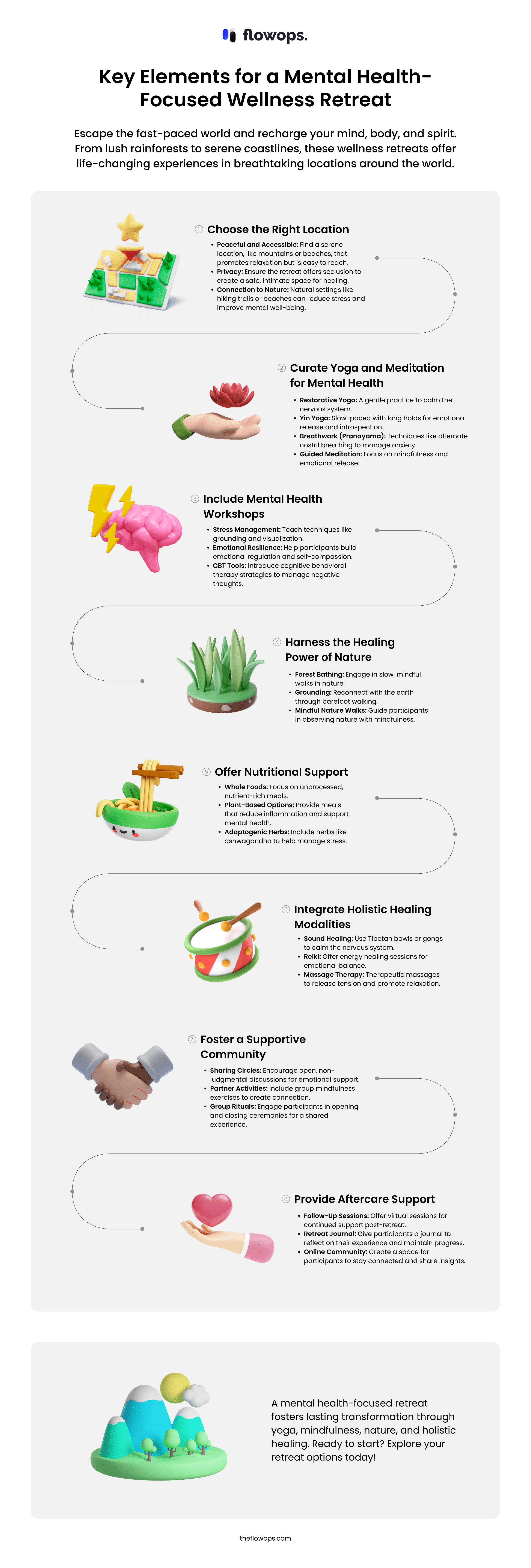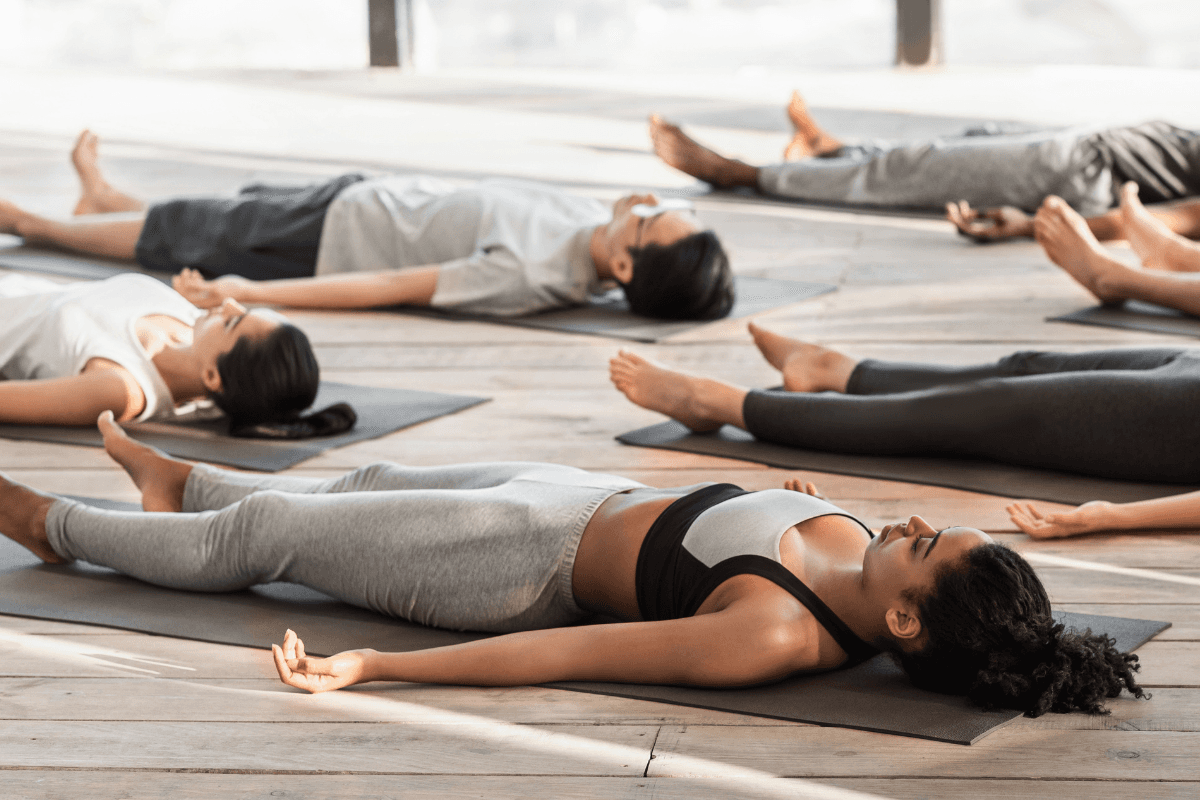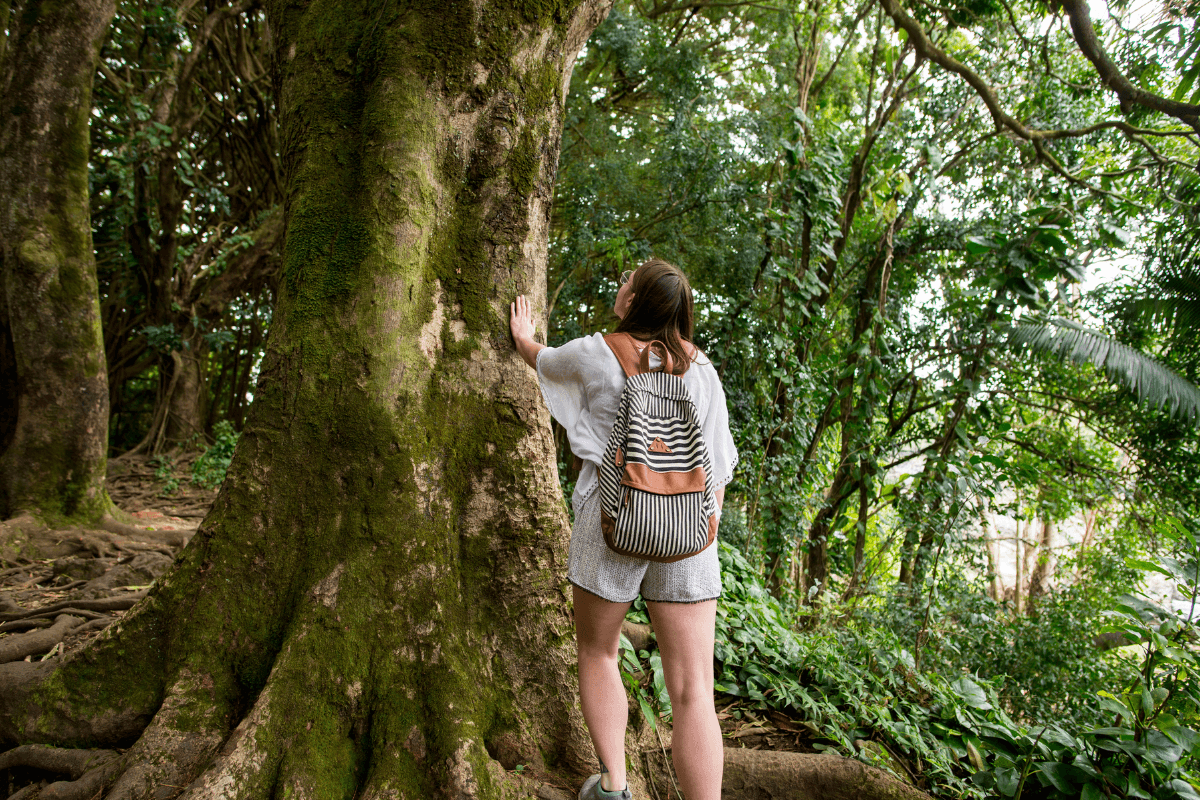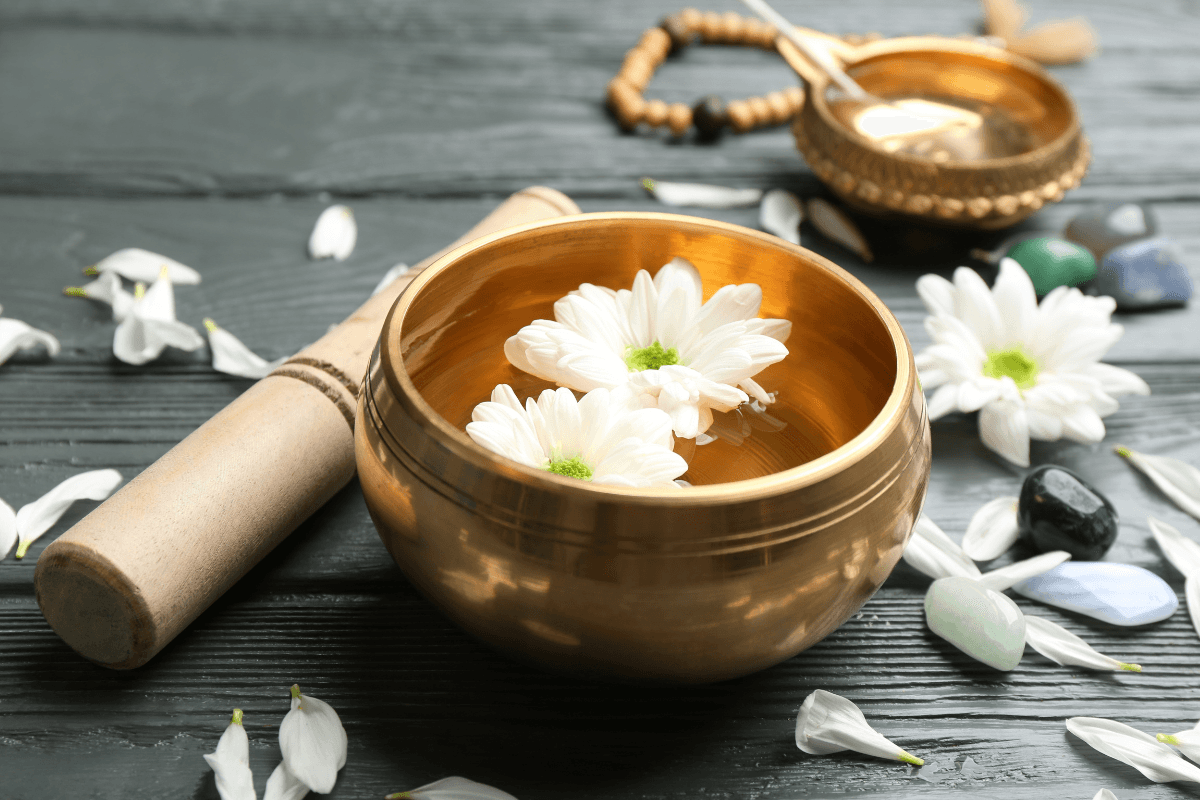As a yoga teacher, the idea of crafting a mental health wellness retreat offers an unparalleled opportunity to create a transformative experience for your participants. Such retreats serve as sanctuaries where individuals can step away from their daily stressors, reconnect with themselves, and develop tools to improve their mental health in a lasting way.
Nowadays, as mental health challenges become increasingly prevalent, more individuals are turning to wellness retreats as a means of healing and self-care.
For yoga teachers, hosting a mental health-focused wellness retreat provides a unique opportunity to offer participants tools that help them manage stress, anxiety, and emotional well-being. Unlike traditional wellness retreats, these events are specifically designed to address the mental health needs of participants by incorporating practices that encourage mindfulness, emotional balance, and self-reflection.
Through carefully planned activities, participants learn to become more aware of their thought patterns and emotional triggers, gaining practical skills that can be used long after the retreat ends.
Combined, these activities create a supportive environment where individuals feel safe to explore their emotions and build resilience. The benefits go beyond temporary relaxation—they help individuals cultivate a lasting sense of emotional well-being and mental clarity.
As a retreat host or yoga teacher, facilitating these types of mental health-focused retreats can be a deeply rewarding experience on multiple levels.
By creating a space where participants can safely explore their emotions and find peace, you’re offering them something truly transformative. Watching your attendees release their stress, gain new perspectives, and leave with tools to improve their mental health is one of the most fulfilling aspects of teaching. You are not just guiding them through practices; you’re providing them with a pathway to deeper connection, both with themselves and with others.
Hosting health and wellness retreats also allows you to nurture a sense of community and purpose, reminding you of the powerful role you play in helping others find healing and balance in their lives. It’s a gratifying journey, not just for them, but for you as well, as you witness the impact of your work and the meaningful change you inspire.
To help you design a retreat that not only stands out but also genuinely helps participants with their mental well-being, here are the key elements to consider. By thoughtfully incorporating these into your retreat, you will offer an experience that is deeply impactful and memorable.
1. Selecting the Right Location: Creating a Space for Mental Healing

The location of your retreat plays a pivotal role in creating the right atmosphere for mental health-focused healing. It’s important to choose a venue that fosters a sense of peace, privacy, and safety. For a mental wellness retreat, natural surroundings—whether mountains, forests, beaches, or serene countryside—are often ideal. These environments help participants relax, reduce stress, and naturally encourage mindfulness and reflection.
What to Consider When Choosing a Location:
Accessibility
While the retreat should feel remote and secluded enough to offer participants a break from daily life, it should also be reasonably accessible. The journey to the location itself should not become a stressor.
Privacy
Privacy is crucial for mental health retreats. This is true not just for luxury wellness retreats. Participants need to feel they are in a safe, intimate setting, free from the outside world’s distractions.
Connection to Nature
Ideally, choose a location that offers easy access to nature, such as hiking trails, beaches, or forests. Exposure to nature can dramatically lower stress levels, reduce symptoms of anxiety and depression, and boost participants’ overall mood.
Pro tip: If possible, conduct a site visit before booking. Take time to experience the atmosphere, the energy of the place, and whether it encourages mental peace and introspection.
2. Curating Yoga and Meditation Practices for Mental Well-Being

Yoga and meditation are core components of any wellness retreat, but for a mental health wellness retreat, it’s crucial to tailor these practices to focus on mental and emotional health rather than just physical fitness.
Types of Yoga Practices to Include:
Restorative Yoga
This practice is designed to be gentle and deeply relaxing, helping to calm the nervous system and release tension in the body and mind. It encourages stillness, which can be particularly effective for those suffering from anxiety or overwhelm.
Yin Yoga
A slow-paced yoga style, Yin focuses on holding poses for longer periods, which can facilitate deep introspection and emotional release. This style works well for mental wellness as it allows participants to slow down and connect more deeply with themselves.
Breathwork (Pranayama)
Teach participants specific breathwork techniques that help manage stress and anxiety. Practices like Nadi Shodhana (alternate nostril breathing) or Ujjayi (victorious breath) can immediately calm the nervous system and improve mental clarity.
Meditation Practices:
Guided Meditation
Incorporate guided meditations that help participants focus on letting go of negative thought patterns and developing mindfulness. Meditation for self-compassion, emotional release, or deep relaxation can be especially helpful for mental health retreats.
Mindfulness-Based Stress Reduction (MBSR)
This type of meditation practice, developed by Jon Kabat-Zinn, has been shown to significantly reduce symptoms of anxiety and depression. Including MBSR sessions can give participants tools they can continue to use long after the retreat.
Pro tip: Offer morning and evening sessions to bookend the day with grounding and restorative practices. Use sound therapy, such as Tibetan singing bowls or chimes, to deepen the meditative experience.
3. Mental Health Education Workshops: Equipping Participants with Life Skills

For a mental health wellness retreat to truly have a long-term impact, it’s essential to include educational components that empower participants to better understand and manage their mental health. Workshops should be interactive and practical, offering participants tools and knowledge they can apply in their daily lives.
Workshop Ideas:
Stress Management Techniques
Teach participants the science of stress, its impact on the body and mind, and techniques to manage it effectively. This can include practices like progressive muscle relaxation, guided visualizations, and grounding techniques.
Emotional Resilience
Workshops on building emotional resilience can help participants navigate challenges in life with greater ease. Topics could include understanding emotional regulation, creating healthy boundaries, and cultivating self-compassion.
Cognitive Behavioral Therapy (CBT) Tools
Incorporate basic CBT techniques such as thought reframing or identifying cognitive distortions. These tools can help participants manage anxiety, depression, and negative thought patterns by challenging and changing the way they think.
Pro tip: Consider collaborating with mental health professionals such as psychologists, counselors, or therapists to lead some of these workshops. Their expertise can add credibility and depth to the educational sessions.
4. Healing in Nature: Harnessing the Power of the Outdoors

Nature is a powerful healer for the mind. The benefits of spending time in natural environments include reduced stress, improved mood, and greater mental clarity. For a mental wellness retreat, it’s essential to include opportunities for participants to spend time outdoors.
Activities to Consider:
Forest Bathing (Shinrin-Yoku)
A Japanese practice that involves slow, mindful walks through the forest, taking in the sights, sounds, and smells. This has been shown to reduce stress hormones and boost immune function.
Grounding Practices
Encourage participants to reconnect with the earth by walking barefoot on grass or sand. This simple practice can reduce feelings of anxiety and enhance feelings of peace.
Mindful Nature Walks
Lead group walks that encourage participants to practice mindfulness as they observe the beauty of nature. Encourage them to use all their senses, deepening their connection to the present moment.
Pro tip: Incorporate guided journaling after these outdoor sessions. Nature can stir deep emotions and insights, and journaling provides participants with a way to process their thoughts and feelings in a meaningful way.
5. Nutritional Support: Feeding the Mind and Body

Nutrition plays a significant role in mental health. A mental wellness retreat should provide meals that not only nourish the body but also support emotional balance and cognitive function. The gut-brain connection is well-documented, and what we eat directly impacts our mental well-being.
Key Nutritional Elements:
Whole Foods
Focus on whole, unprocessed foods rich in vitamins, minerals, and antioxidants. These nutrients help support brain health and stabilize mood.
Plant-Based Options
Offering plant-based meals can help reduce inflammation in the body, which is linked to improved mental health outcomes.
Adaptogenic Herbs and Teas
Adaptogens like ashwagandha, holy basil, and Rhodiola can help participants manage stress and improve their energy levels.
Pro tip: Consider offering cooking workshops or nutrition classes during the retreat. Educating participants on how to prepare nourishing meals at home empowers them to continue prioritizing their mental health after the retreat.
For more tips, check out our Meal Planning Guide.
6. Integrative Healing Modalities: Offering a Holistic Approach

Beyond yoga and meditation, there are other holistic healing practices that can deeply benefit mental well-being. Including integrative therapies helps create a well-rounded retreat that addresses participants’ emotional, mental, and energetic needs.
Healing Modalities to Include:
Sound Healing
Using instruments like Tibetan singing bowls, gongs, or tuning forks, sound healing can calm the nervous system and promote deep emotional release.
Reiki
This energy healing practice can help participants clear emotional blockages and feel more balanced.
Massage Therapy
Therapeutic massage promotes relaxation, reduces muscle tension, and can help release stored emotions in the body.
Pro tip: Offer a variety of modalities and allow participants to choose which resonate with them. Personalization is key in ensuring each person gets what they need from the experience.
7. Fostering a Safe and Supportive Community Environment

A supportive community is a cornerstone of a successful mental wellness retreat. For many participants, the sense of connection with others on a similar journey can be a powerful catalyst for healing. As the facilitator, it’s your job to create an environment of trust, openness, and non-judgment.
Ways to Foster Community:
Sharing Circles
Create space for participants to share their experiences, thoughts, and feelings in a non-judgmental setting. Sharing circles can be a deeply therapeutic practice, where participants feel heard and supported.
Partner Activities
Include partner yoga or group mindfulness exercises that encourage participants to connect with one another. These activities can help break down barriers and create a sense of belonging.
Group Rituals
Group rituals, such as opening and closing ceremonies, can help participants feel like they are part of something bigger. Rituals can involve lighting candles, setting intentions, or simply reflecting together on the journey.
Pro tip: Emphasize confidentiality at the beginning of the retreat to ensure participants feel safe sharing personal experiences. This will encourage deeper connections and more meaningful interactions.
8. Providing Aftercare and Integration Support

One of the most critical yet often overlooked aspects of a mental health wellness retreat is what happens after participants leave. The retreat should not be seen as an isolated experience but as the beginning of a lasting journey toward mental wellness.
Aftercare Ideas:
Follow-Up Sessions
Offer virtual follow-up sessions where participants can reconnect, share their progress, and ask for continued support.
Retreat Journal
Provide participants with a retreat journal filled with prompts, reflections, and action steps they can take home with them. This helps them integrate what they’ve learned into their daily routines.
Online Community
Create an online space (such as a Facebook group) where participants can continue to support each other, share insights, and stay connected after the retreat.
Pro tip: Send participants periodic emails with mindfulness tips, meditations, or other resources. This keeps the retreat’s energy alive and encourages long-term growth.
Conclusion: Designing a Retreat That Transforms
Crafting a mental health wellness retreat as a yoga teacher is a profound opportunity to help others find peace, balance, and a deeper connection to themselves.
By thoughtfully incorporating these key elements—tailored yoga and meditation, mental health education, nature immersion, holistic healing modalities, and a strong sense of community—you’ll create a retreat that fosters lasting transformation.
As you plan your retreat, remember that the goal is not just to offer temporary relief, but to equip participants with tools and practices that will serve them long after they return to their everyday lives. In doing so, you will be creating a space of true healing and empowerment for all who attend.



